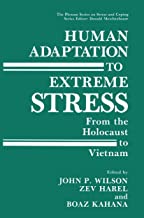General Adaptation Syndrome
The general adaptation syndrome (GAS), developed by Hans Selye, describes the pattern of responses that the body goes through after being prompted by a stressor. There are three stages: alarm, resistance, and exhaustion.
Cluster Number:
Wiki Number: W089
Diagnosis: General Adaptation Syndrome
US Patients:
World Patients:
Sex Ratio:
Age Onset:
Brain Area: amygdala, hypothalamus, limbic system, stria terminalis, prefrontal cortex; the autonomic nervous system takes over
Symptoms: lack of coping resources to chronic stress can lead to delusions, depression and anxiety, raise serum lipids vs. heart attacks
Progression: alarm(shock&(antishock-locus coeruleus); resistancea, and exhaustion-return to homeostaisis unless chronic-PTSD
Causes: sympathetic nervous system (like “speech anxiety”) and the hypothalmic nervous system-fight-flight releasing cortisol
Medications: None Listed
Therapies: Learning coping strategies reduces stress;acute stress, short duration; (may be milder) stress, long enough to be chronic
Youtube Video: Stress and the HPA Axis
Amazon or Library Book: Human Adaptation to Extreme Stress
Click your book to link or order from Amazon.

